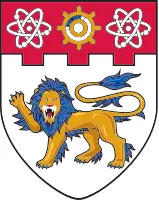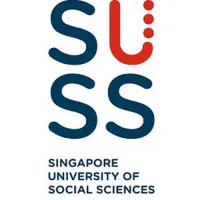Discover global hiring strategies from leading recruitment platforms
Learn more
Speed up your global expansion! Expand smartly in 150+ countries with the #1 rated EOR globally.
Explore Multiplier EOR

Your guide to the employment landscape, working customs and local labor laws in Singapore.
Capital
Singapore
Currency
Singapore Dollar (SGD)
Languages
English (Official), Chinese, Malay, Tamil
GDP per Capita
$94,594.57
Employer Tax
17.25% + varying tax
Payroll Frequency
Monthly
Singapore is considered the most open economy in the world by the World Economic Forum. As it stands, Singapore has low tax rates and currently sits atop the second highest GDP per capita based on purchasing power parity in the world. The country focuses on exporting electronics, chemicals, and services. Small and medium-sized businesses are the main foundations of Singapore’s economy.
Major economic hubs:
Singapore City
Skills in demand:

Local: 1
World : 114

Local: 2
World : 244

Local: 3
World : 771

Local: 4
World : 1,780

Local: 5
World : 2,925
Top Local Job Boards:
Top Local Job Boards
Number of LinkedIn users:
Number of LinkedIn users
Top Recruitment Agencies:
Some popular jobs and their monthly salary are listed below
| Job Title | Monthly Average Salary (SGD) | Monthly Average Salary (USD) |
| IT Project Manager | 12,000 | 9,083 |
| Chief IT Security Officer | 10,900 | 8,250 |
| Web Security Manager | 11,900 | 9,007 |
| Intelligence Manager | 10,200 | 7,721 |
| Project Manager | 9,430 | 7,138 |
When looking into hiring employees in Singapore, employers must know the country’s employment laws, benefits, payroll, and taxes. We’ll discuss the basics of what to prepare when onboarding talents from the country below.
Employment contracts in Singapore can be expressed through written, oral, or implied means. However, it is recommended by the Ministry of Manpower that contracts be written to minimize unintended disputes.
There is no specific requirement for the language of employment contracts. Most businesses though use English as the medium.
The probationary period for employees ranges from 3 – 6 months.
| Date | Name | Type |
| 1 Jan | New Year’s Day | National holiday |
| 10 Feb | Lunar New Year’s Day | National holiday |
| 11 Feb | Second Day of Lunar New Year | National holiday |
| 12 Feb | Day off for Lunar New Year’s Day | National holiday |
| 29 Mar | Good Friday | National holiday |
| 10 Apr | Hari Raya Puasa (Tentative Date) | National holiday |
| 1 May | Labour Day | National holiday |
| 22 May | Vesak Day | National holiday |
| 17 Jun | Hari Raya Haji (Tentative Date) | National holiday |
| 9 Aug | National Day | National holiday |
| 31 Oct | Diwali/Deepavali | National holiday |
| 25 Dec | Christmas Day | National holiday |
| Type of leave | Time period | Mandatory |
| Annual leave/Earned Leave | 7 days | Yes |
| Sick Leave | 14 days | Yes |
| Maternity Leave | 16 weeks | Yes |
Leave Compliance
Payroll cycle
Employees are paid monthly, within 7 days of the end of the salary period.
Minimum wage
Singapore has no minimum wage policy.
Overtime pay
Employees are only allowed up to 72 overtime hours in a month, unless they apply for exemption to increase it. Overtime pay varies between the following employee category:
Read more
| Type of Tax | Contribution (%) | Notes | |
| CPF Contribution (Pension) | Employees aged 55 & Below | 17% | Payable for monthly salary ≥ SGD$750 |
| Employees aged above 55 to 60 | 14% | ||
| Employees aged above 60 to 65 | 10% | ||
| Employees aged above 65 to 70 | 8% | ||
| Employees aged above 70 | 7.50% | ||
| Skills Development Levy | 0.25% / SGD 2 for employees earning less than SGD 800 monthly / SGD 11.25 for employees earning more than SGD 4,500 | Whichever is highest, capped at SGD 11.25 | |
| Worker’s Injury Compensation Insurance | Depends on Insurance Plan Offers | All employees involved in manual work, regardless of salary level.All employees doing non-manual work, earning a salary of $2,600 or less a month, excluding any overtime payment, bonus payment, annual wage supplement, productivity incentive payment and any allowance. |
| Type of Tax | Contribution (%) |
| CPF Contribution (Pension) | |
| Employee Age | |
| 55 & below | 20% |
| Above 55 to 60 | 14% |
| Above 60 to 65 | 8.50% |
| Above 65 to 70 | 6% |
| Above 70 | 5.00% |
| Community Contribution | $0.50 – $30.00 |
Income tax levied in Singapore is at a progressive rate on all annual income as follows:
| Taxable income (SGD*) | Years of assessment 2022 and 2023 | Year of assessment 2024 | |||
| Over (column 1) | Not over | Tax on column 1 (SGD) | Percentage on excess (%) | Tax on column 1 (SGD) | Percentage on excess (%) |
| 0 | 20,000 | – | – | – | – |
| 20,000 | 30,000 | – | 2.00 | – | 2.00 |
| 30,000 | 40,000 | 200 | 3.50 | 200 | 3.50 |
| 40,000 | 80,000 | 550 | 7.00 | 550 | 7.00 |
| 80,000 | 120,000 | 3,350 | 11.50 | 3,350 | 11.50 |
| 120,000 | 160,000 | 7,950 | 15.00 | 7,950 | 15.00 |
| 160,000 | 200,000 | 13,950 | 18.00 | 13,950 | 18.00 |
| 200,000 | 240,000 | 21,150 | 19.00 | 21,150 | 19.00 |
| 240,000 | 280,000 | 28,750 | 19.50 | 28,750 | 19.50 |
| 280,000 | 320,000 | 36,550 | 20.00 | 36,550 | 20.00 |
| 320,000 | 500,000 | 44,550 | 22.00 | 44,550 | 22.00 |
| 500,000 | 1,000,000 | 84,150 | 22.00 | 84,150 | 23.00 |
| 1,000,000 | 194,150 | 22.00 | 199,150 | 24.00 | |
Fixed at 22% of income.
The Goods and Services Tax/ VAT in Singapore is 7%.
A 13th-month bonus is customary depending on the company. It is usually paid at the end of the year.
Employees in Singapore has the opportunity to avail of the following benefits during their employment:
Termination of an employment contract in Singapore may happen in the following circumstances:
A notice must be given by either of the parties when deciding to terminate a contract. It must follow the terms and conditions set out in the contract of service.
The notice period for Singaporean employees will be up to 30 days.
In practice, the severance pay in Singapore is equated to Responsible Retrenchment which the employees who served at least 2 years in the company are entitled to. The retrenchment benefit is usually paid for two weeks to one month of salary per year of service depending on the financial standing of the company.
Generally, Visas in Singapore are issued before entry into the country. It is not considered as an immigration pass but is needed in order to do business in the country. Many of the countries do not require a Visa to enter Singapore however those who do need Visas have individual requirements depending on the country.
There are three types of passes (visas) to be able to have the authorization to operate a business or work in Singapore depending on the nature of your business.
Read more
Expand globally and hire talent in 150+ countries without having to set up an entity. Use Multiplier's Employer of Record to manage the complete employee experience while having the flexibility to enter new markets.

Overtime Pay
Minimum Wage
Overtime Pay
Employees are only allowed up to 72 overtime hours in a month, unless they apply for exemption to increase it. Overtime pay varies between the following employee category:
It should be paid within 14 days after the last payroll period and is capped at SGD$13.60/hr.
Visa and Immigration
| Types of Work Passes (Visa) | Who are eligible | Requirements |
| Employment Pass | Professionals, managers, and executives | At least $4,500.00 monthly salary |
| Personalized Employment Pass | Professionals, managers, and executives | High-earning employment pass holders and overseas workers |
| EntrePass | Entrepreneurs | Those who are keen to start and operate a business that is venture-backed or possess innovative technologies |
By use case
By team
By company size